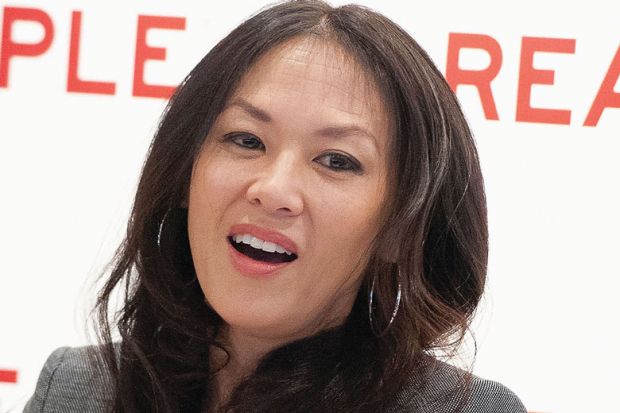Yale University has sanctioned a law professor over her handling of dinner parties with students, a common but potentially fraught practice that US institutions largely leave to the discretion of faculty.
Yale’s case involves Amy Chua, whose husband, fellow law professor Jed Rubenfeld, was previously penalised over concerns about their at-home student events that included alleged personal and even sexual misconduct tied to potential professional advancement.
Professor Chua’s penalties include a fine and a two-year ban on teaching required courses, while Professor Rubenfeld is serving a two-year suspension from the law school.
She denied violating any rules, including a reported 2019 agreement not to socialise with students outside of class. “The school was obviously expecting me to socialise with students, so the notion that I was under some kind of ban is hard to understand,” Professor Chua wrote to her colleagues. Yale has offered no comment.
The case, outside experts said, illustrated the risks of a practice widely understood to occur at universities across the US, yet was rarely subject to direct regulations or guidelines.
Katie Roiphe, a professor of journalism at New York University who writes about social challenges in academia and beyond, regarded the practice of professors hosting students as widespread – and highly beneficial.
Official regulation of such gatherings doesn’t seem necessary, Professor Roiphe said. “To me, there are sort of common-sense guidelines,” she said.
And yet, Professor Roiphe acknowledged, there can be real abuses. She recalled her time as a postgraduate student at Princeton University, when the department chair would host parties and hire some students as waiters and invite others as guests.
But restricting socialising between professors and students could deprive students of a kind of high-level mentorship that’s important for their careers, she said.
“I do not think we need these kinds of rules in higher ed,” Professor Roiphe said. “The problem there is not the socialising,” she said of her Princeton experience. “The problem there is that you have a professor who is not behaving professionally in a lot of different ways.”
Kevin Brown, a professor of English at Lee University who also writes on faculty challenges, said he too recognised great value in informal and off-campus faculty-student interactions, but believed that basic rules may be needed.
Even at a Christian-centred private institution in Tennessee, Professor Brown said he faced no explicit regulations on the matter and doesn’t know of any elsewhere.
But it was easy to imagine serious repercussions, such as a student drinking at a faculty member’s house and getting killed on the drive home, he said.
“At some point, something will probably happen that will require universities to design some sort of policy,” Professor Brown said. “Given higher education, though, that will probably be after something happens rather than before.”
Questions such as favouritism – as alleged in the case of Professor Chua and Professor Rubenfeld at Yale and described by Professor Roiphe at Princeton – “can definitely come up”, Professor Brown said. His policy, as a result, was to keep all events open to all students.
Professor Roiphe said she too invited all students to her off-campus events. But she said that human relationships cannot be constructed in ways that absolutely guarantee equal opportunities for everyone.
“We live in a world in which those who can perform best socially are going to get jobs, get work, get writing assignments, whatever it is,” she said. “And the idea that you can level the playing field so your shyest student will do equally well in life as your outgoing student is pure fantasy.”




